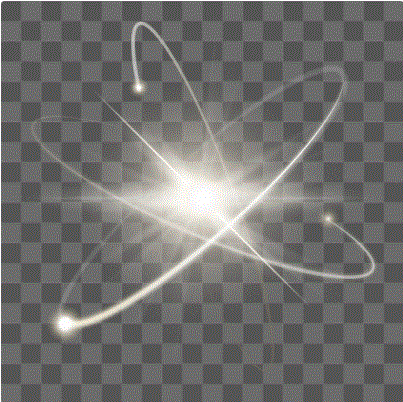Is This the Long-Distant Future of Collecting?
- by Michael Stillman

Is this the appearance of tomorrow's collectible books?
There was an article in Forbes recently that addresses the issue of changes in patterns of long-term collecting. This is not one of those will people be more interested in fiction or non-fiction, or will they still be interested in James Bond and Harry Potter five or ten years from now. No, this is seriously long term, such that I won't have to worry about it, and probably neither will you unless you are much younger than I. This change won't even begin until sometime after the year 2065 and even then it will take time to gather some steam. Nevertheless, a little blue skying is fascinating once in a while.
The title of this article is NFT “Idea Tokens” Are Not Just Here To Stay. They Are The Future Of The Economy, the author Amir Husain, founder and CEO of an artificial intelligence company. That sounds extreme if not totally unbelievable, but hear him out. There will be changes in the next 50 years we can't even imagine today. The shortcoming here may be that he is too hidebound by today's knowledge rather than too far out. NFTs (non-fungible tokens) are those digital signatures that make a digital or virtual “thing” unique. They are a big thing in 2021, but may be long since passé by 2065, the target date.
That date was selected based on some predictions that this is the point when earth's human population will peak, to then begin a decline. This seems reasonable as overpopulation in some areas is not sustainable, and as incomes rise, families get smaller. Some industrialized nations no longer produce enough children to maintain their population at current levels.
Economic growth over the past few centuries has been based on population growth. What happens when the population starts to shrink, too few people chasing an overabundance of goods and services? Will gold maintain its value when there are fewer people wanting it? Will the value of agricultural land continue to increase when less food is needed while production efficiency continues to rise? Perhaps the answer is to increase per capita consumption, but consumption of what? We can't (or shouldn't) eat more food than we already do. Will we need more cars when there are unmanned aerial vehicles waiting to take us where we want to go? And, if we produce more and more goods, where will we put them all?
That leads us to Husain's NFT theory of how people will spend their money. He explains, “One example of a formless, infinitely varied class of goods is virtual, digital artifacts that are represented only as data. These goods can be created in any quantity, solely by converting energy into unique, one-of-a-kind tokens that impart ownership. These tokens can represent ideas, discoveries, art, music, and in fact, entire collections of such goods. They can allow individual, exclusive ownership, easy transferability, efficient storage and demand no maintenance.” He continues, “But why would people want vast quantities of such tokens?” That leads to a quote about books that caught my eye, “Book collectors can never have enough books. They will pay more for first editions and copies signed by the author. Art appreciates.”
In this scenario, NFTs are the new books. But that doesn't mean books disappear. There can be NFT books too. It just requires a digital copy of a book rather than a physical one. In other words, people can collect electronic books instead.
Does that sound far-fetched? Maybe not. Something else recently caught my eye. It's called Calibre. It is described as “an open source e-book library management application that enables you to manage your e-book collection, convert e-books between different formats, synchronize with popular e-book reader devices, and read your e-books with the included viewer. It acts as an e-library...”
You can now keep your e-book collection in an e-library. You can have your reading copies and your collectible token ones (which you can read too without damaging them). You can buy, sell, collect and dispose, just like with physical books. It is book collecting for the digital age, for people who grew up living in a virtual world.
Will this come to pass? I don't think so, but not for the reason you might think, that as an older person, this all seems ridiculous to me. Actually, it's quite the opposite. Looking back 50 years ago, all sorts of technological advances have occurred that no one thought of back then. Who imagined the internet? How about cell phones, let alone smart phones? Even personal computers were a stretch then. Social media? Video games let alone online ones? Virtual reality? Augmented reality? Artificial intelligence? The weakness in Husain's argument, in my opinion, is that his future is all based on today's technology. As we know, technology advances, and those advances come faster and furiouser, not slower. The world of 2065 will look so different from today's, and the idea that NFTs will survive, let alone prosper, seems dubious. They are more likely to be the equivalent of eight-track tapes and boomboxes, a fad left in the dust by something better.